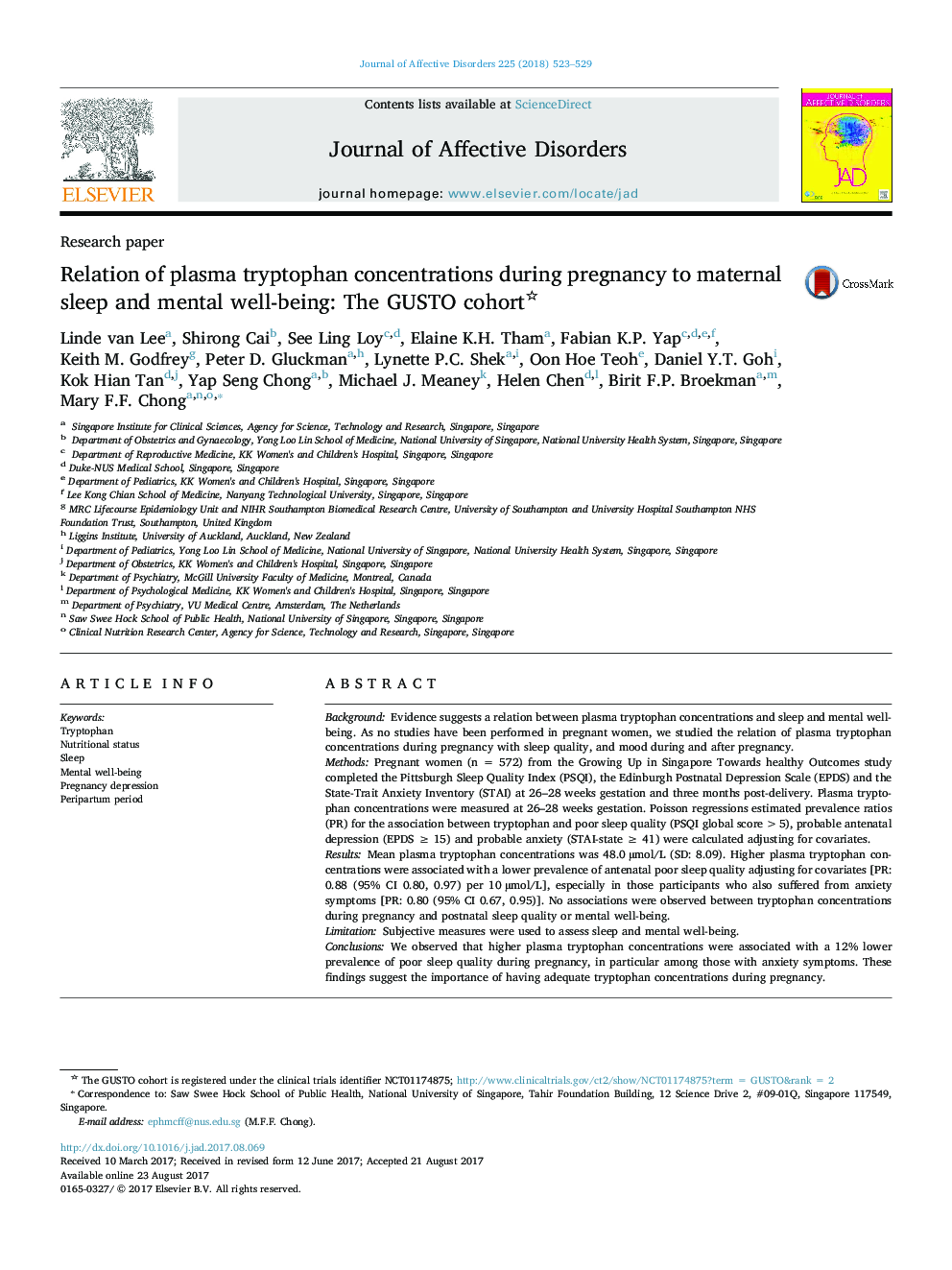| Article ID | Journal | Published Year | Pages | File Type |
|---|---|---|---|---|
| 5721754 | Journal of Affective Disorders | 2018 | 7 Pages |
â¢Relation of tryptophan status in pregnancy on perinatal sleep and mood was studied.â¢Pregnant women with higher tryptophan had a 12% lower risk of poor sleep quality.â¢This association was stronger among poor sleepers with anxiety (20% lower risk).â¢No association was found between tryptophan status and postnatal sleep and mood.
BackgroundEvidence suggests a relation between plasma tryptophan concentrations and sleep and mental well-being. As no studies have been performed in pregnant women, we studied the relation of plasma tryptophan concentrations during pregnancy with sleep quality, and mood during and after pregnancy.MethodsPregnant women (n = 572) from the Growing Up in Singapore Towards healthy Outcomes study completed the Pittsburgh Sleep Quality Index (PSQI), the Edinburgh Postnatal Depression Scale (EPDS) and the State-Trait Anxiety Inventory (STAI) at 26-28 weeks gestation and three months post-delivery. Plasma tryptophan concentrations were measured at 26-28 weeks gestation. Poisson regressions estimated prevalence ratios (PR) for the association between tryptophan and poor sleep quality (PSQI global score > 5), probable antenatal depression (EPDS ⥠15) and probable anxiety (STAI-state ⥠41) were calculated adjusting for covariates.ResultsMean plasma tryptophan concentrations was 48.0 µmol/L (SD: 8.09). Higher plasma tryptophan concentrations were associated with a lower prevalence of antenatal poor sleep quality adjusting for covariates [PR: 0.88 (95% CI 0.80, 0.97) per 10 µmol/L], especially in those participants who also suffered from anxiety symptoms [PR: 0.80 (95% CI 0.67, 0.95)]. No associations were observed between tryptophan concentrations during pregnancy and postnatal sleep quality or mental well-being.LimitationSubjective measures were used to assess sleep and mental well-being.ConclusionsWe observed that higher plasma tryptophan concentrations were associated with a 12% lower prevalence of poor sleep quality during pregnancy, in particular among those with anxiety symptoms. These findings suggest the importance of having adequate tryptophan concentrations during pregnancy.
